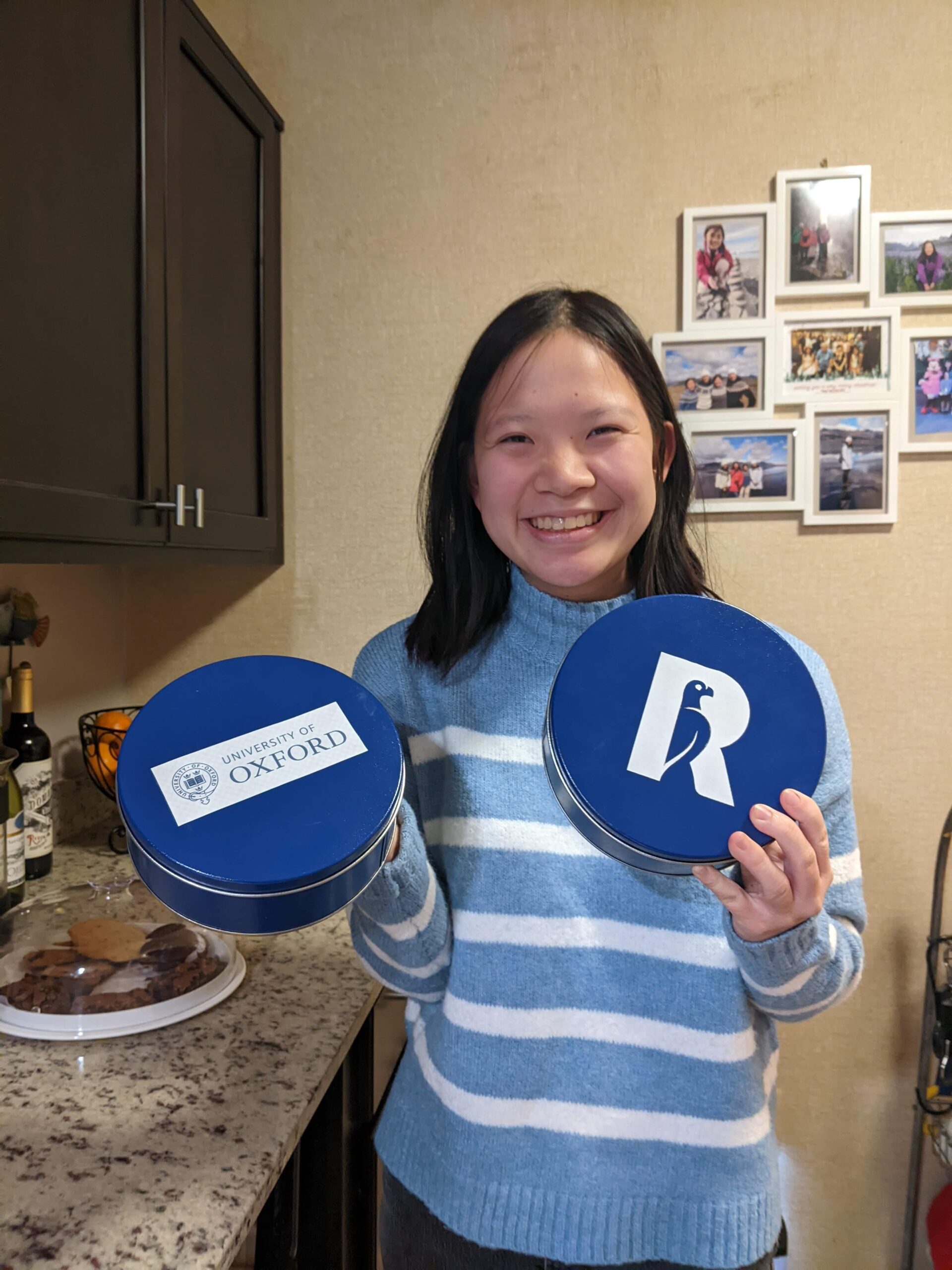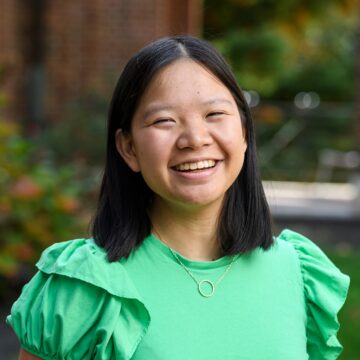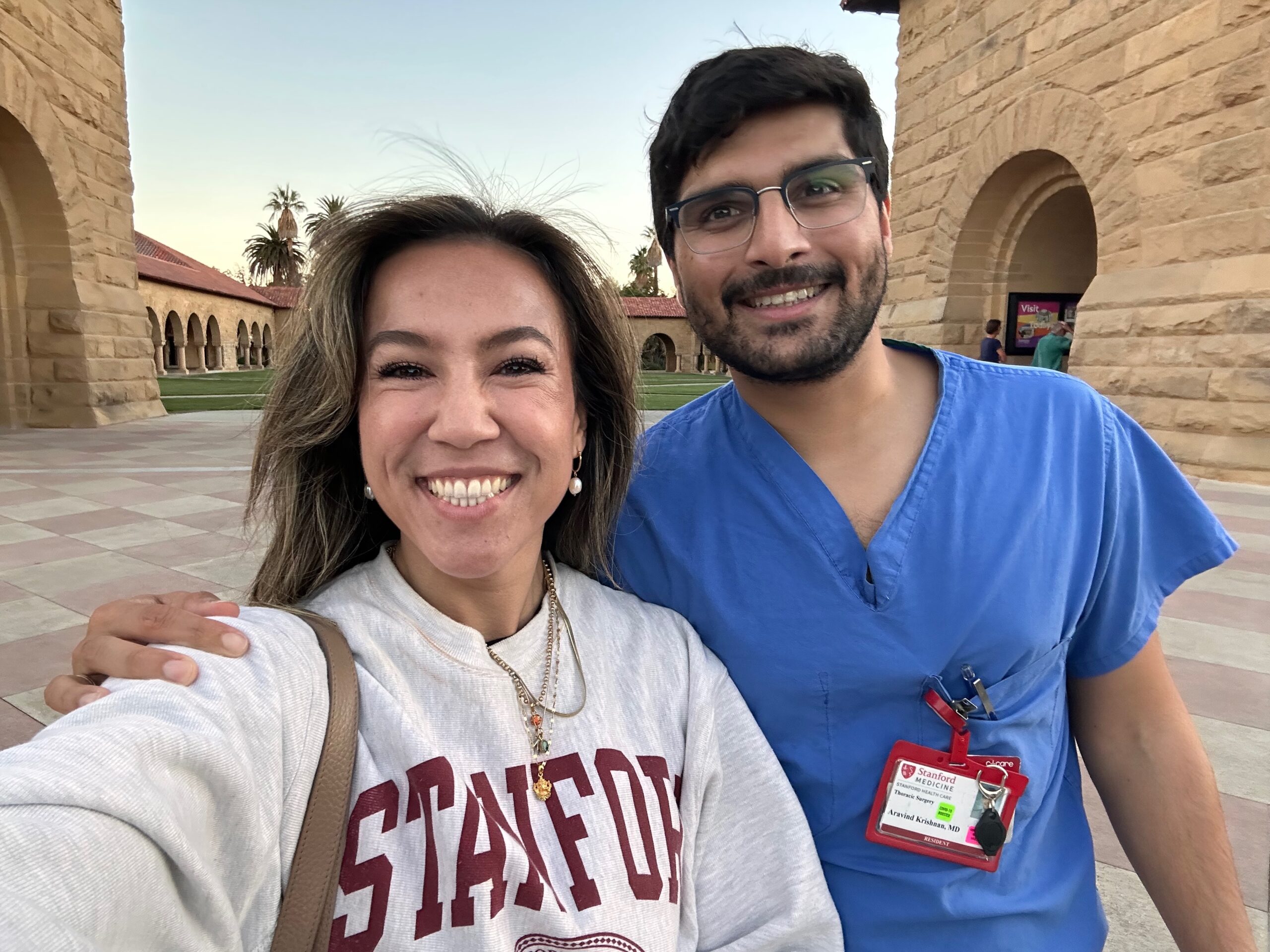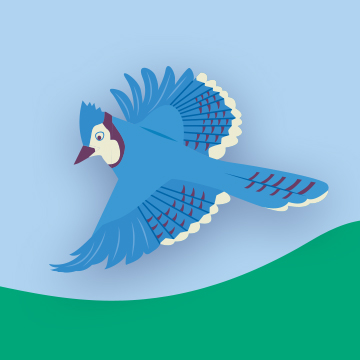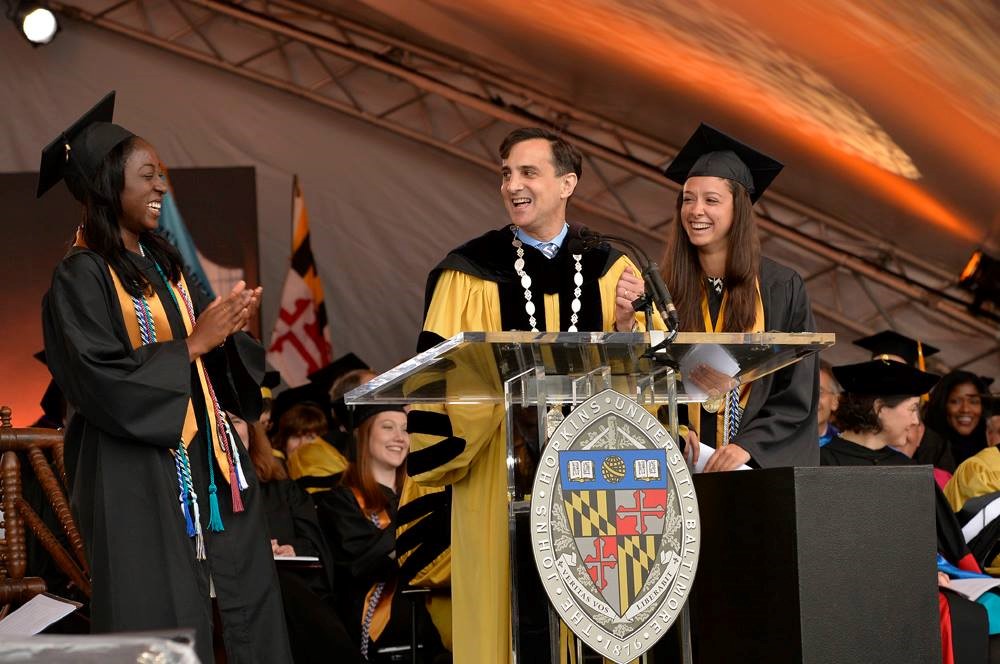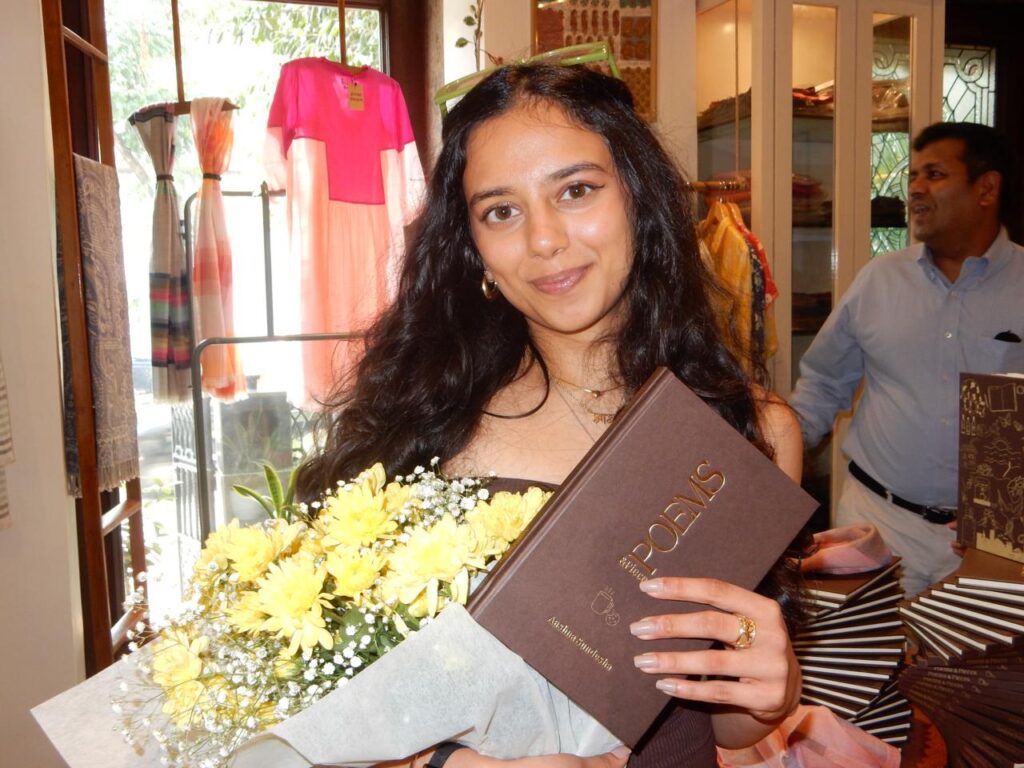
Hopkins Insider met with Hopkins alumna Aashna Sundesha, ’22 to learn about her Hopkins experience and how it has impacted her post-grad life.
This transcript has been edited for clarity and brevity.

Can you tell us a little about yourself?
I’m Aashna. I graduated in 2022. I was an international student from Mumbai, India, and a double major in psychology and writing seminars. I also minored in visual arts.
What have you been up to since you graduated from Hopkins?
Right after I graduated from Hopkins, I pursued my Master of Science in Sport and Exercise Psychology at Loughborough University in the U.K. Then I graduated in December 2023, and I’m currently working as a sports and performance psychologist at a hospital in Mumbai.
I also self-published a poetry book heavily inspired by my writing, experiences, and time at Hopkins. It’s a collection of 21 poems divided into three sections: love, home, and patience. A lot of the pieces are about Baltimore being a home away from home and my friendships overseas. It has quotes that stood out to me over the years, and I’ve quoted so many of my poetry professors, bosses, and guest poet lecturers.
It was fun to share my book because it’s been almost two years since I graduated from Hopkins, but I get to keep bits with me in different ways like this. It’s especially hard because I’m not in the country physically. I’m finding a way to connect everything back to my time at Hopkins.
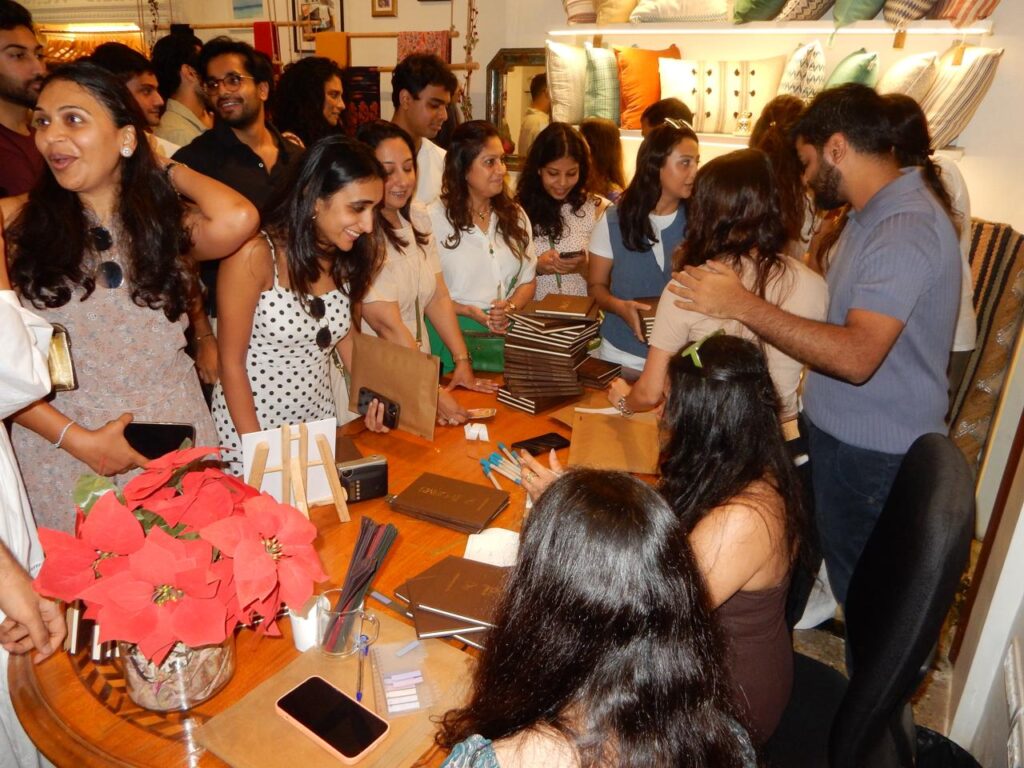
From the time you started at Hopkins to the time you graduated, how did your academic and/or career interests evolve?
I graduated with the intended majors I came in with, but in terms of my academic interests aligning with where I am now, my time at Hopkins clarified it in many ways.
I found my passion for sport and exercise psychology at Hopkins. In my second year, I had a class called Careers in Psychology. Every week a different lecturer spoke to us about their field of psychology, and one person was a sports psychologist. At the same time, my friends were introducing me to all these sports at Hopkins. I was going to lacrosse and baseball games and wrestling matches.
That was the first time I connected my interests in sports and psychology. The Hopkins environment steers you to make whatever combination of things you want. Sport psychology was not something that existed at Hopkins and yet, for the next two years, my professors encouraged me to make my research papers or assignments about sport psychology because they knew I was interested in it.
I minored in visual arts because I didn’t want to graduate early. I felt like COVID took away a few important semesters from me, so I added a minor in visual arts. It was the most amazing choice I could have made because it helped my creative side and my poetry.
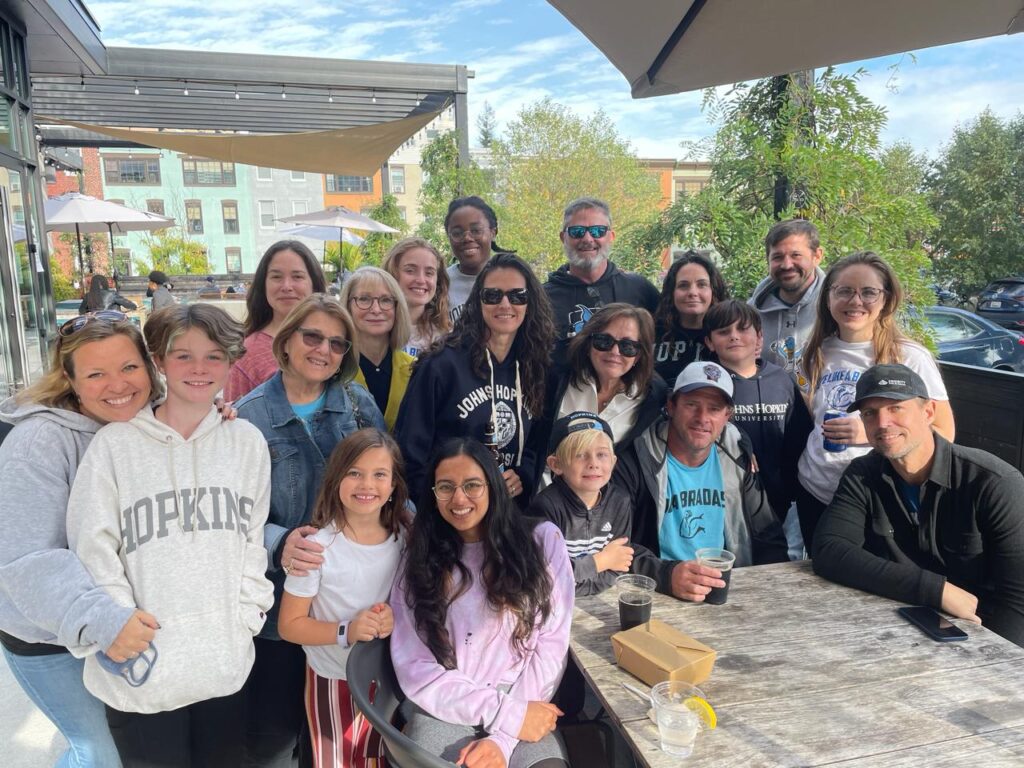
Since you graduated, how have you stayed connected to Hopkins?
I still go back to my notes and my assignments. I have a whole Hopkins folder that I refer to when I’m doing work if I want to pull up a study or a concept we learned. All that academic information is still very relevant to what I do.
In terms of my connections, I try to stay in touch with my people at Hopkins through group chats and whatnot. I’m proud of the connections I’ve been able to maintain despite the distance. I’ve made a lot of new friends over the last couple years, but I still go to my Hopkins friends for advice or comfort.
There are also small things like I’m still subscribed to the The Baltimore Sun so I can stay up to date with what’s happening in Baltimore.
I’m still in touch with a lot of current students because I made those connections as their First-Year Mentor.
What are some of your favorite memories from Hopkins and Baltimore?
I think Baltimore was a relationship that took a while to build because there was so much happening on campus during my first year that I didn’t explore as much as I wanted. Then COVID hit, and we didn’t get a chance.
The last year and a half, I was exploring to the max, which I’m very lucky I did. We had picnics by the pagoda in Patterson Park, went to the Sandlot for salsa nights, studied at Peabody Library, and went to The Charmery for ice cream in the middle of studying for exams.
Other memories I have are ice skating, lacrosse and baseball season, going to my friend’s games, and always finding some corner of campus that has free bagels, coffee, or donuts.
A Place to Talk was something I volunteered for almost my entire time at Hopkins. Every shift I sat for and every training I did brought happy memories and great connections but also is so relevant to my job as a psychologist. Those experiences were something I did for fun, but they still aligned with my interests and created a foundation for what I’m doing right now.
I was lucky enough to do the bucket list video which made me re-live everything when I was graduating. Filming that with my friends and doing the things that I do anyway—it was special to have that documented forever.
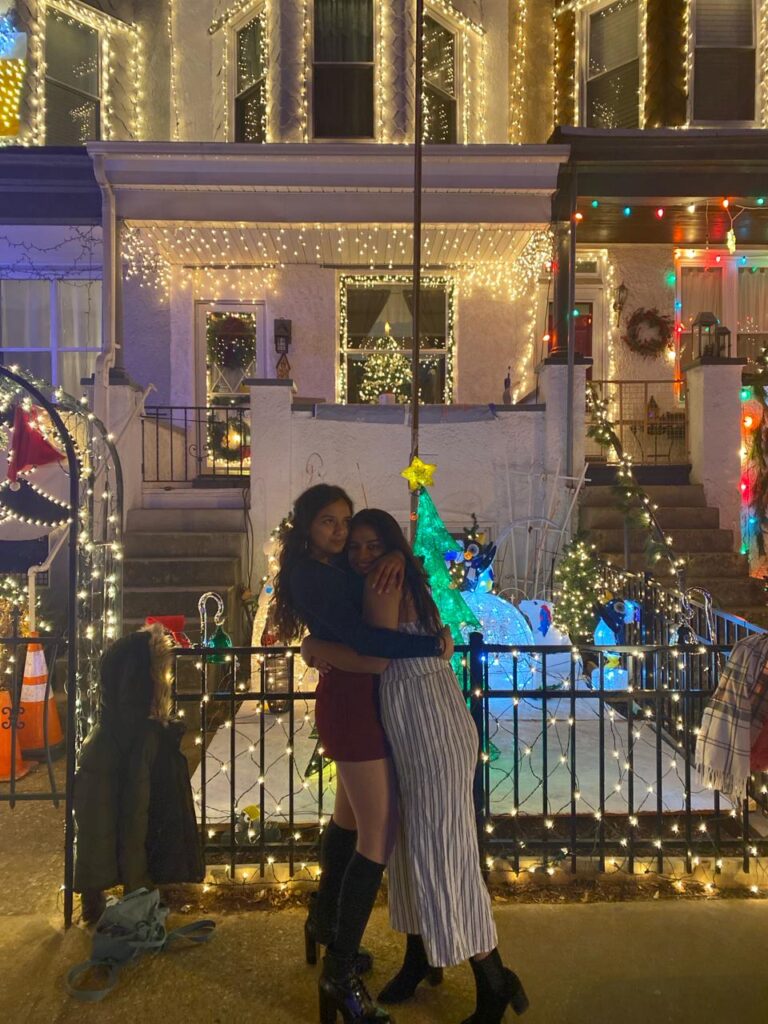
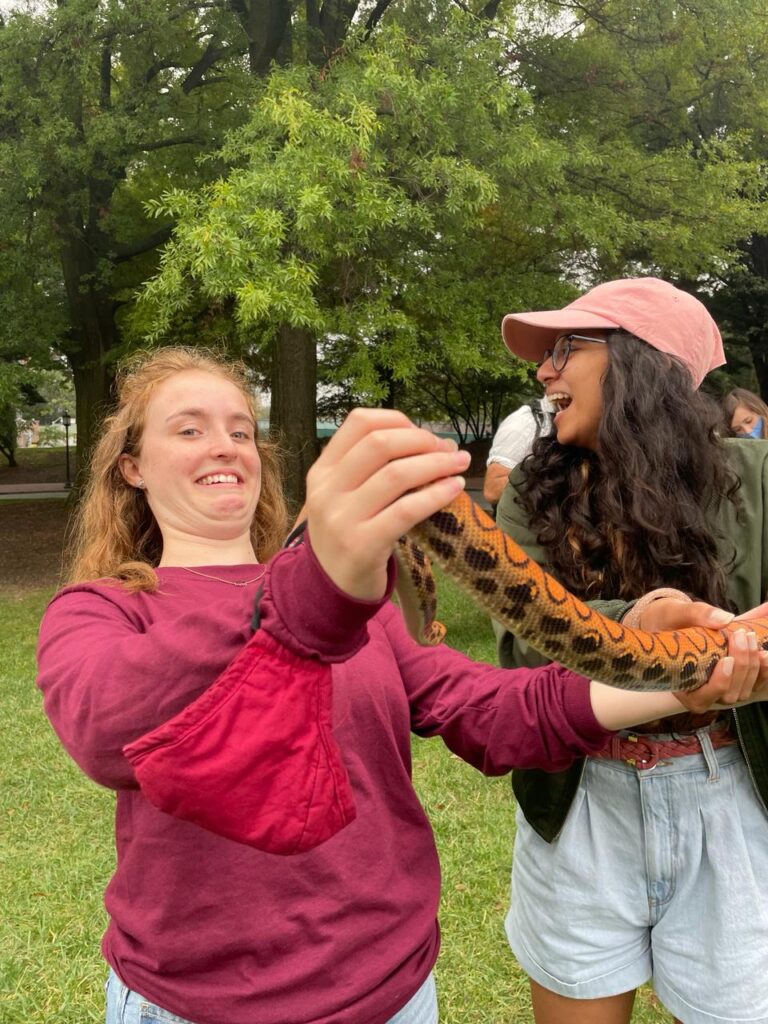
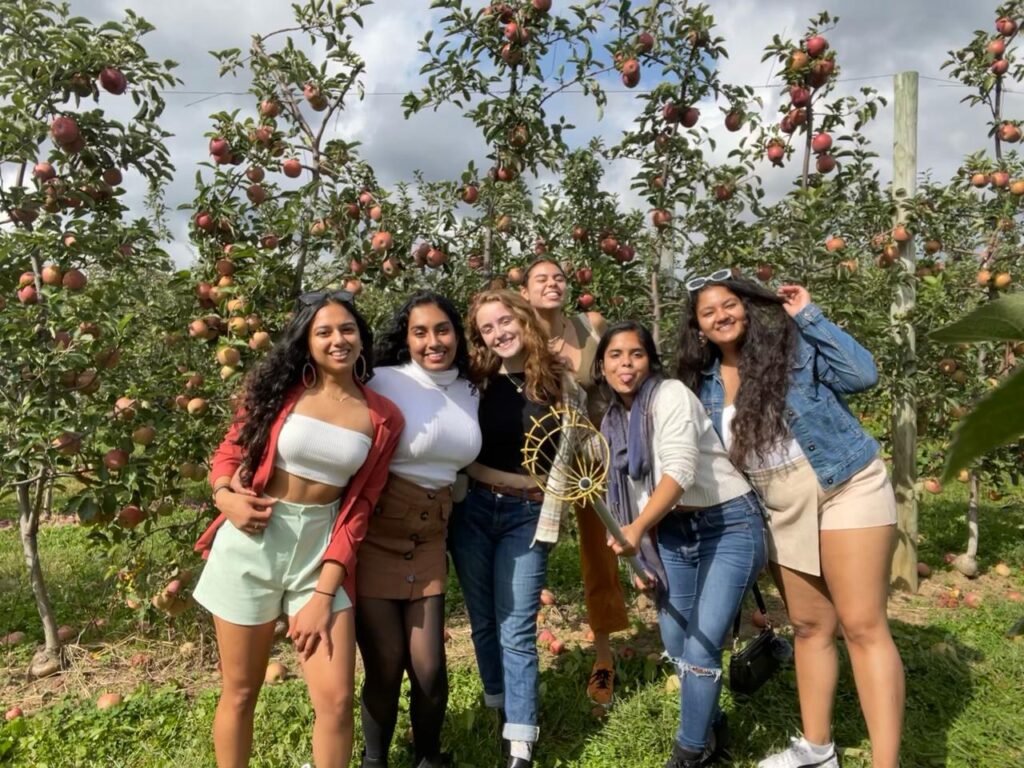
What about your Hopkins experience had the greatest impact on you?
I think everything you do at Hopkins flows into other things. Your classes, extracurriculars, and friends all tie together and become your mini ecosystem.
A Place to Talk and being a First-Year Mentor were the two experiences I think had the biggest impact on me. Career-wise, these places gave me the opportunity to not only be a leader but also to be led by some amazing people. Over my four years I had five part-time, on-campus jobs. In each of them I was led by people with different leadership styles, and each taught me so much about how to be a leader.
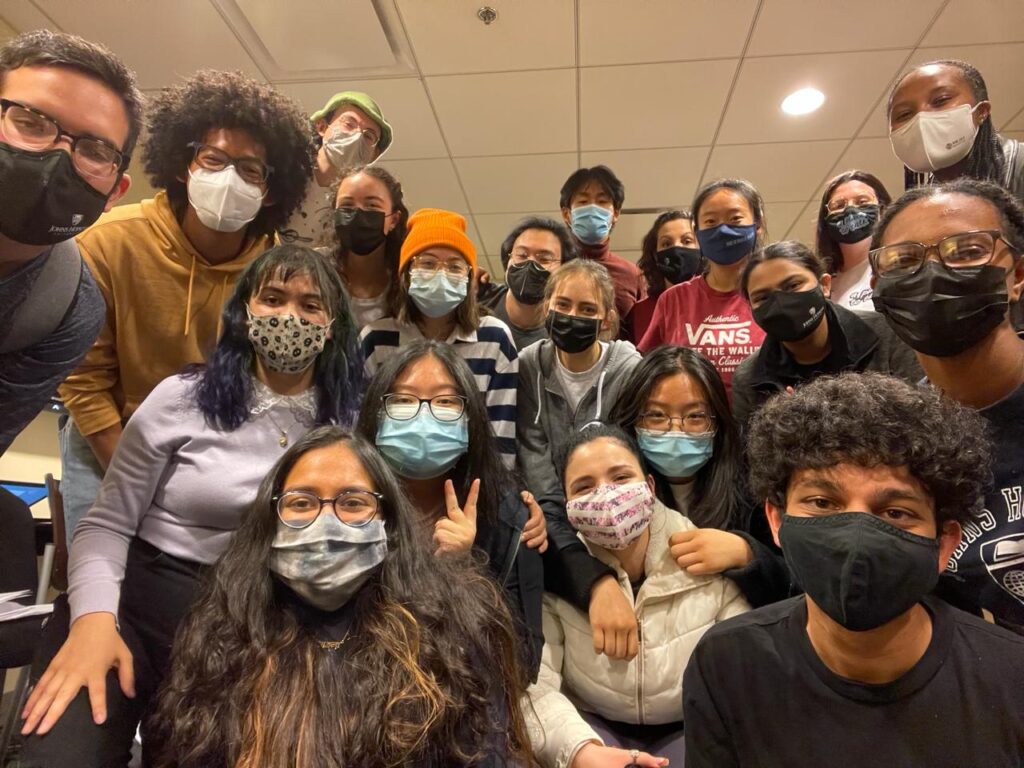
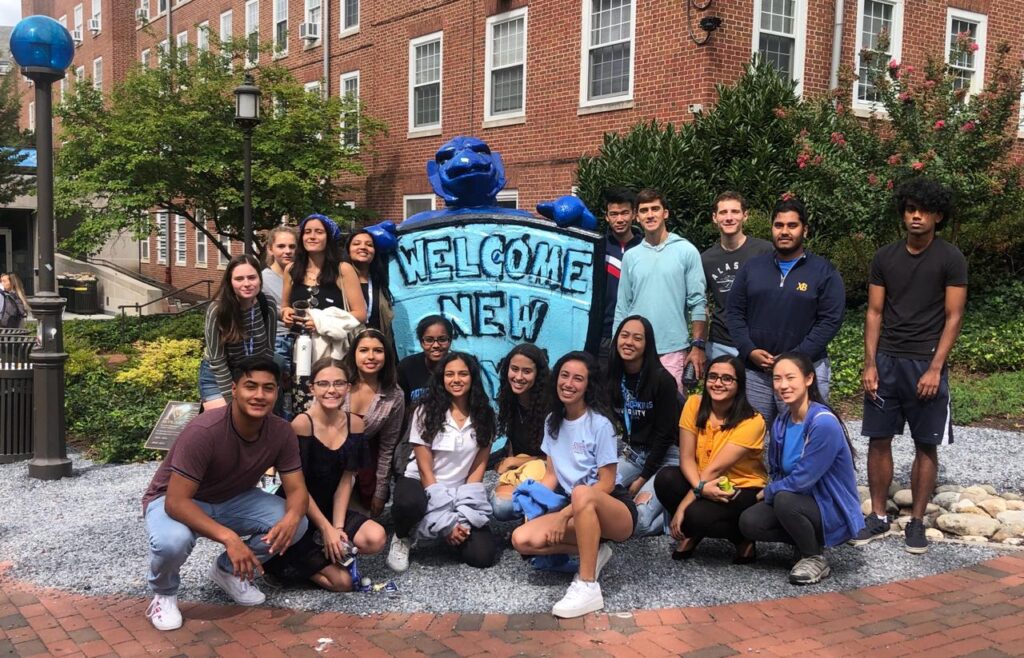
Did you have a favorite professor and/or favorite class at Hopkins?
I had so many favorite professors. I’ll say Dr. P (Alison Papadakis). I took a bunch of psychology classes with her, and she used to tell us her classes were structured like master’s level classes. They really worked because I did my master’s degree and I was like, “Oh my God. Dr. P prepared me so well for this.” I sent her a copy of my book.
Professor Andrew Motion was a poetry professor of mine. He’s one of the first people I quote in my book. I really appreciated my time with Professor Motion. He was someone who kept my love for poetry alive and was also a great critic.
How did your Hopkins experience help prepare you for your career?
Being a study consultant was super helpful to my current role as a sports and performance psychologist. With study consulting, you actively work with students to help them with their time management and organizational skills. I’m doing that now with athletes on a performance level.
What has surprised you most about your field?
I work in a very Eastern setting (Mumbai, India). It’s been interesting to see how my Western education and practical experiences fit into more collectivist cultures.
Equally surprising is how so many things in my field are cross-cultural. On a basic level, all humans function in similar ways like emotions. I can use the same skills I picked up from A Place to Talk or the case studies I did with Dr. P.
Why would you recommend studying at Hopkins to students interested in your major(s) or career path?
Something I really appreciated about my experience is that I could pursue a combination of things I don’t think any student at another university could put together: sports, creative writing, and psychology.
For someone that’s confused or passionate about more than one thing, Hopkins is a great place to equally explore those in depth.
For instance, I did visual arts too. It sounds like a lot, but it was so doable, natural, and fun. I grew so much because I was able to do all these things.
Hopkins has something for everyone but also everything for one person.
Do you have any advice for students considering Hopkins?
I would advise them to explore all Hopkins has to offer so they can find that spot they can call home. I had friends from every single major from different countries and backgrounds, and I called those people my home.
You also have to put yourself out there and try things you wouldn’t normally to figure out what works for you.
My other piece of advice is to run your own race and focus on your own track. Hopkins is a very motivating environment, and it’s important to look to your peers not as competition or in comparison but for inspiration.
